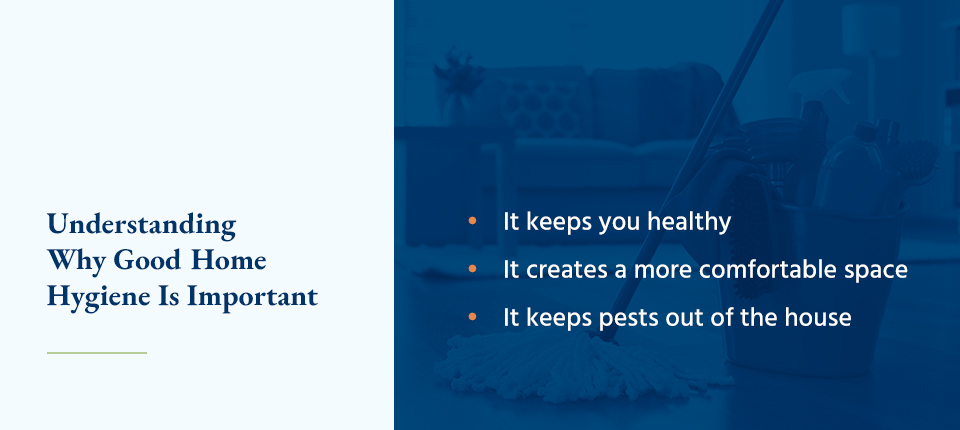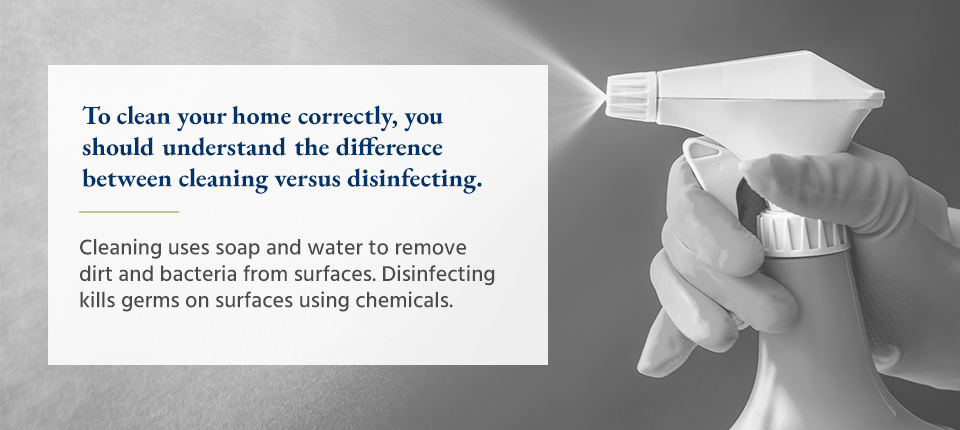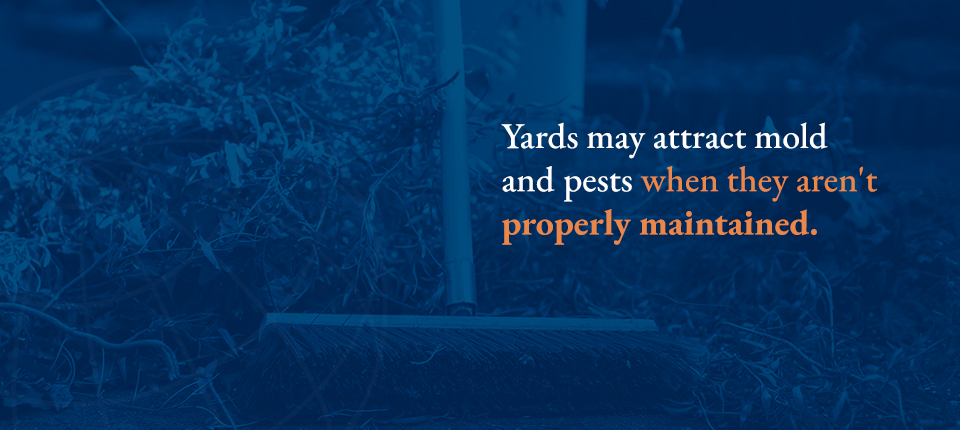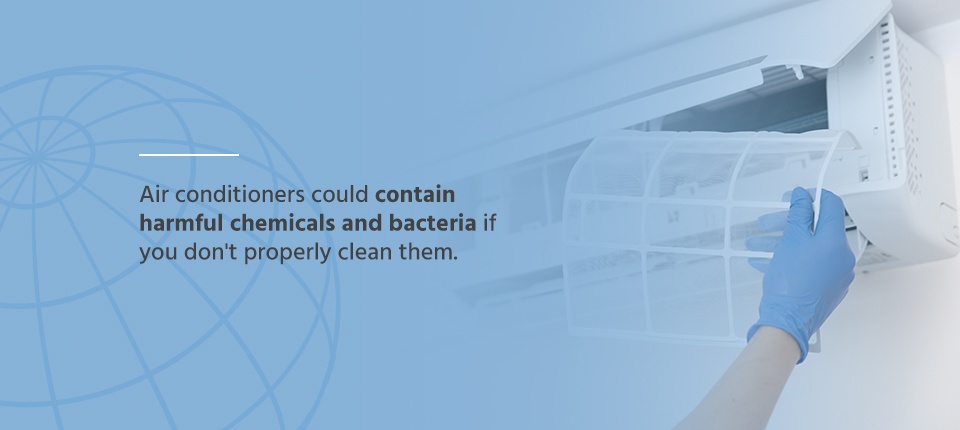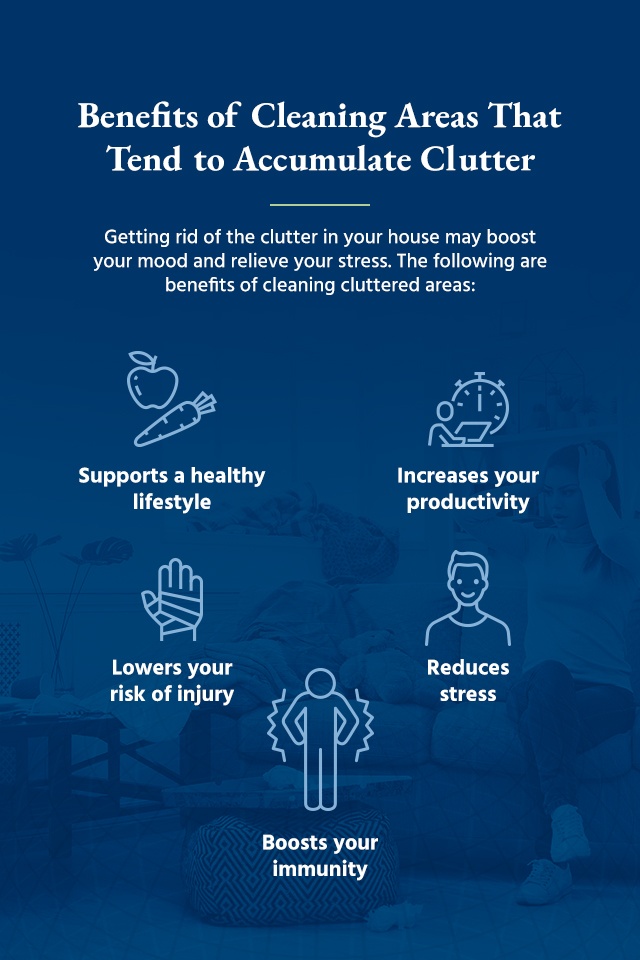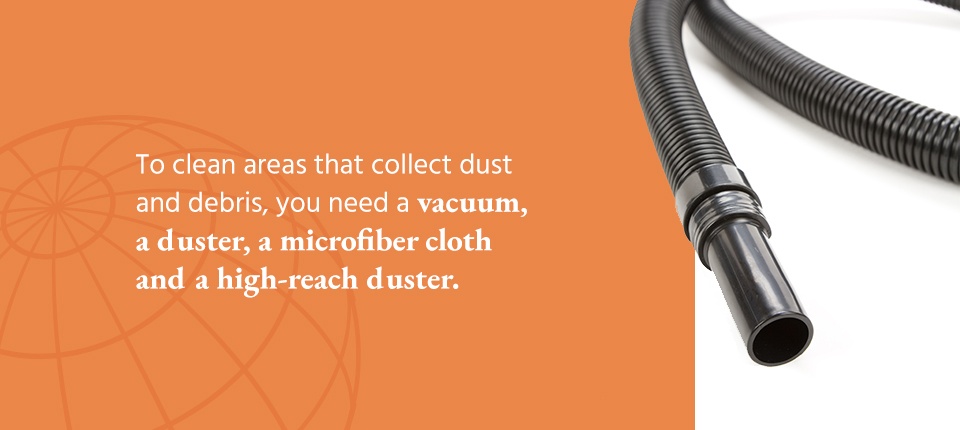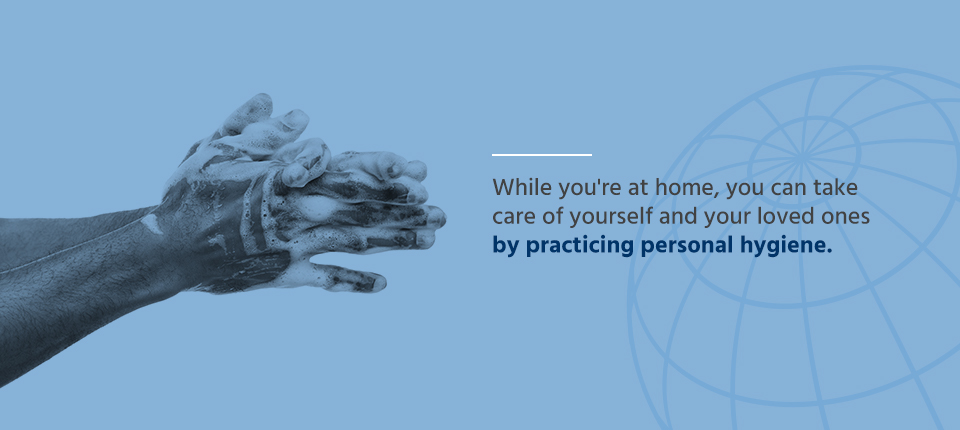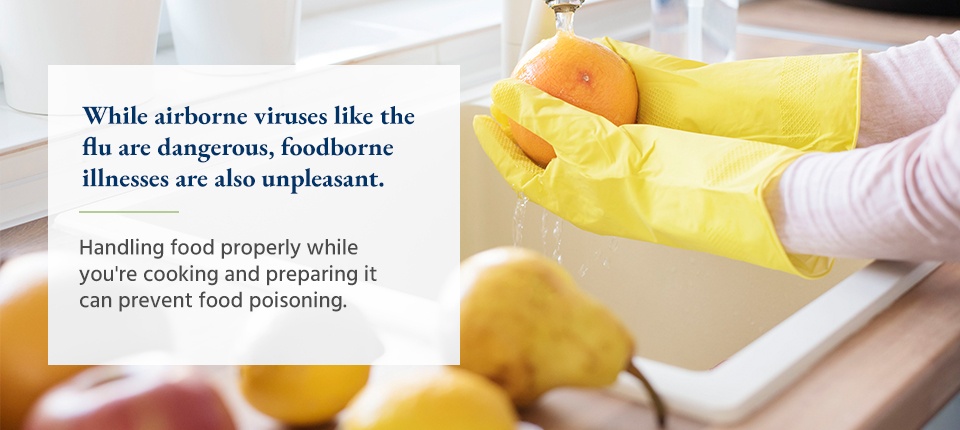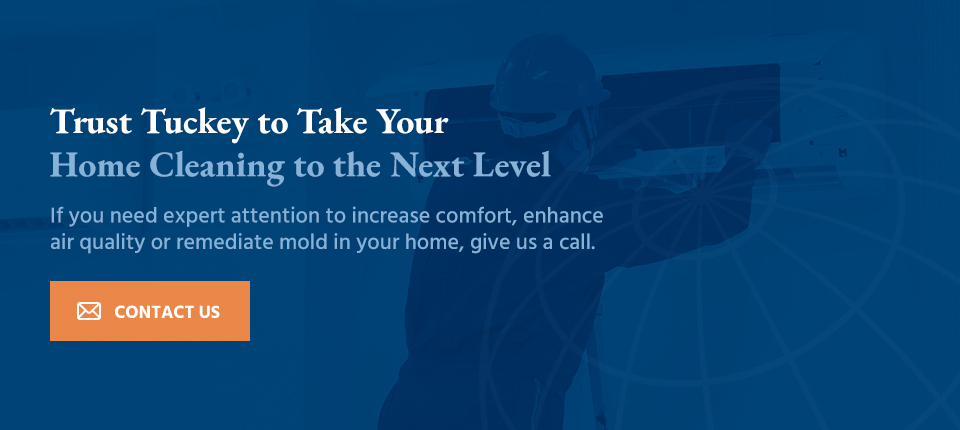Home Hygiene Tips
January 2, 2024 | 4:38 pm
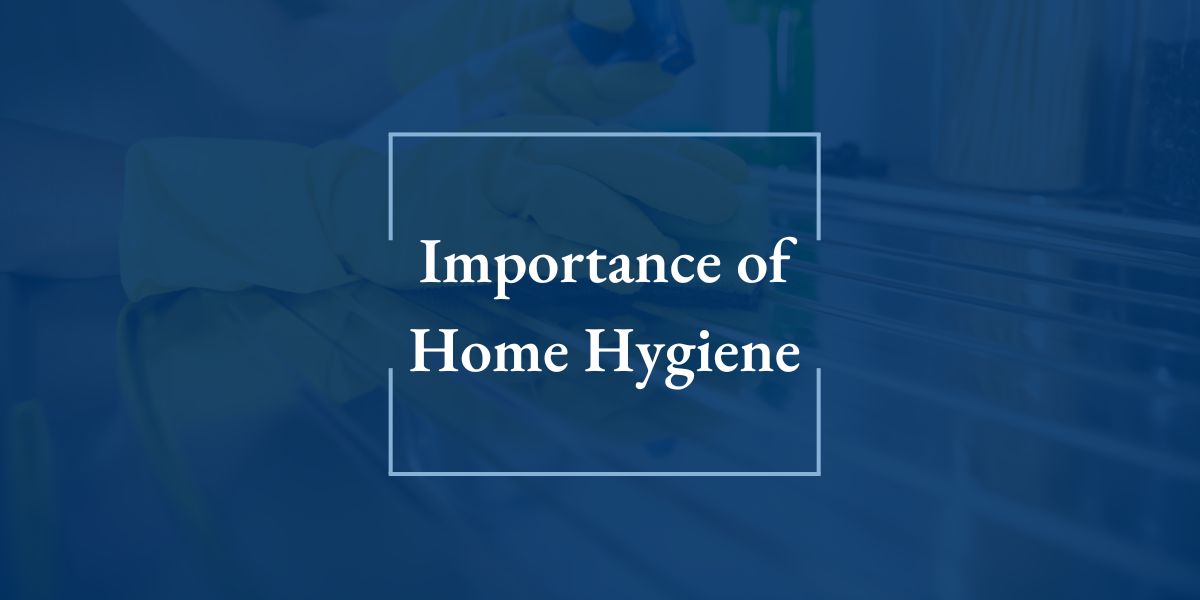
Taking care of your home is as important as taking care of your body. Cleaning and disinfecting your home helps reduce your risk of infection to keep you and your family healthy. Use these home hygiene and health tips to maintain a clean, comfortable environment.
Understanding Why Good Home Hygiene Is Important
General home hygiene involves regularly cleaning the inside and outside of your house. You also need to handle food properly and take care of your health to keep your living space clean. Some of the reasons why proper home hygiene is essential for your property include:
- It keeps you healthy: Good home hygiene helps prevent the spread of germs and infection. Bacteria may hide in different parts of the house, so you should clean high-traffic areas regularly. Be mindful of dealing with bacteria as you cook and clean in the kitchen to reduce the risk of contracting foodborne illnesses.
- It creates a more comfortable space: Poor hygiene in the house may lead to undesirable smells and sights. Cleaning your home allows you to enjoy your living space without unpleasant distractions.
- It keeps pests out of the house: Insects and rodents enjoy moldy, dusty areas of the home where they can hide. When you clean your house often, you could spot and deal with these pests before they cause an infestation.
Understanding How Germs Spread and Can Cause Illness
Mold, bacteria or dust can naturally accumulate over time, which is why you need to identify and address problem areas with proper cleaning. The following are important elements to remember to ensure your cleaning habits are effective:
- How germs spread: Germs travel into your home through your clothes, food or pets, and they stick to certain surfaces better than others. For example, towels and mops come into contact with bacteria and may quickly spread it throughout the house. Most viruses enter your body via the hands, especially by touching your face or rubbing your nose. You may also contract foodborne illnesses if you prepare or eat food without washing your hands.
- How long germs are contagious: Each type of bacteria or virus survives and spreads differently. For example, people with the flu are most contagious in the first three to four days after their illness begins. Healthy adults may infect others one day before symptoms start and five to seven days after becoming sick. The flu may live on surfaces for up to 48 hours.
- Chemical dwell time: Cleaning products need to stay wet on countertops and other surfaces for a while to disinfect them properly. All cleaning/disinfectants should be used per label instructions. All label guidelines and specifications should be reviewed prior to use and products should be used only within said specifications. For example, pay attention to the dwell time for cleaning products listed on the bottle’s instructions when cleaning. For best results, clean the dirt and debris off a countertop before you disinfect it.
Areas of the Home That Require Cleaning and the Proper Ways to Clean Them
To clean your home correctly, you should understand the difference between cleaning versus disinfecting. Cleaning uses soap and water to remove dirt and bacteria from surfaces. Disinfecting kills germs on surfaces using chemicals. Both methods aim to reduce the spread of infection in your house. As you clean and disinfect, pay special attention to the following areas and cleaning techniques:
1. How to Clean Common Indoor Surfaces
You should regularly clean the indoor surfaces in your house, especially those high-traffic areas that everyone touches. If someone in your family is sick, you should also disinfect your living space to prevent the spread of germs. Keep these tasks in mind as you clean and disinfect the house:
- Cleaning countertops: Wipe down countertops in the kitchen and bathroom with a microfiber cloth and a household cleaner. As you cook, you should also clean spills to prevent stains and bacteria. Remember that all label guidelines and specifications should be reviewed prior to using any cleaning supplies or disinfectants and that you should only use products within their specifications.
- Wash the dishes: Clear the dishes out of your sink each day, running them through the dishwasher or cleaning them by hand. Once a week, run the kitchen sink strainer through the dishwasher.
- Disinfect trash receptacles: Empty trash cans and take out the garbage often. Wipe down the containers with a cloth and sanitizing spray when they’re empty.
- Clean the floors: Clean spills from the floor as they happen. Vacuum carpets and mop or sweep the floors once a week. If using floor cleaner, follow the contact time recommended on the bottle.
- Disinfect toys: Disinfect children’s plastic toys often. You can also wash their plush toys in the washing machine once a week.
- Wipe knobs and faucets: People in your household touch doorknobs and turn on faucets all day. Sanitize the sink faucets, handles and doorknobs with disinfecting wipes or a microfiber cloth and household cleaner.
- Clean electronics: Wipe down your electronics, including your phone, at least once a week. Turn them off before you clean them, and use a cleaner that’s safe for these sensitive products.
- Change toothbrushes: You should replace your toothbrush once every three months. Once a week, wash the toothbrush holder in the dishwasher or wipe it with a disinfecting wipe.
- Wash towels: Clean and change out towels and cleaning cloths often. If you have a sick person in the house, run the towels through the washing machine in hot water. Adding vinegar to the towels may also fight germs and be a natural fabric softener.
2. How to Clean Yard and Outside Surfaces
Yards may attract mold and pests when they aren’t properly maintained. Tidy your outdoor furniture and lawn by following these tips:
- Prevent mold growth in the yard: Stop the spread of mold by keeping moisture away from your property. Mow and rake the lawn at least once a week. Inspect and clean your gutters in the spring and fall. Store firewood away from the house so you don’t attract termites and other insects.
- Clean the lawn: Remove fallen tree branches and other debris that may bring mold and pests into your backyard.
- Clean concrete patios: Use a broom to sweep away as much debris as possible. If your concrete patio needs more cleaning than that, wash it with the spray attachment on a hose or a power washer.
- Clean wooden decks: Sweep the deck with a broom and apply a wood cleaner or soapy water with a sponge. After rinsing, let the deck dry. Once a year, seal your deck to keep the wood panels from rotting or collecting mildew. You may need to replace a rotten panel so it doesn’t affect the others.
- Clean the grill: You should clean your grill before you put it away in the fall to prevent the food bits from producing mold. Scrape the grates with a grill stone or a metal brush to get rid of any additional debris. If there are stubborn pieces of food, you may need to soak the grates in a large bucket of soap and water, then use the metal brush to scrape them clean. For simple cleaning, use a soap that gets rid of grease.
- Clean the siding: You can use a hose to remove the dust and dirt on your siding. For deeper cleaning, scrub the siding with soapy water and a stiff brush.
- Clean the outdoor furniture: To protect your outdoor furniture, keep a cover on it or bring the cushions inside when you’re not using them. Wipe any chairs and tables clean with soapy water. If you find mildew on your cushions, wait for them to dry. Scrub the surface mold with a brush and rinse the cushion with a hose.
- Clean the garbage cans: Wash the garage cans with soapy water once every few months. Always dispose of waste in a bag and clean up leaks from the bottom of the can.
3. How to Clean and Inspect the HVAC System, Air Ducts and Dryer Vents
Your HVAC system and dryer vents could affect the air quality of your home. Air conditioners could contain harmful chemicals and bacteria if you don’t properly clean them. Follow these tips for keeping these parts of your house clean:
- Clean the dryer vents: Clean the lint filter inside the dryer after each use. About once a month, vacuum the lint stuck inside the dryer. Then, unplug the dryer from the wall and vacuum the lint from inside the dryer vent connected to the wall.
- Clean the registers: First, turn on the fan to break up the dust you may have in the ducts. Then, turn off the fan and lift the registers. Sweep out the dust and debris with a vacuum cleaner or a brush.
- Hire a professional to tune-up the air conditioner: The coil in your air conditioner may develop rust and debris due to wear and tear on the machine. Before the summer heat reaches a peak, hire a professional to perform annual maintenance, like coil cleaning.
- Hire a professional to clean the ductwork: Cleaning the HVAC vents that circulate air to various rooms of your home only covers a small fraction of the overall ductwork. Hire the professionals at Tuckey Restoration to perform a duct cleaning routine and improve the air quality of your home.
- Clean or replace your air filters: Clean your air filters at least once a month and replace them if they’ve torn.
Learn About Our Duct Cleaning Services Learn About Our Dryer Vent Cleaning Services
4. Benefits of Cleaning Areas That Tend to Accumulate Clutter
Getting rid of the clutter in your house may boost your mood and relieve your stress. The following are benefits of cleaning cluttered areas:
- Supports a healthy lifestyle: As you make a habit of cleaning your property, you can incorporate other healthy lifestyle goals. You could encourage yourself to cook by organizing your kitchen and tidying the spice rack. Reorganize your kitchen storage to ensure you have easy access to healthy foods. Organize your activewear in a separate drawer so you may access it easier. Open windows every day to circulate the air to maintain a healthy respiratory system.
- Increases your productivity: Clutter affects your ability to focus. Clearing it can free up mental space and help you concentrate. To be more productive at home, sort bills and paperwork into labeled filing trays. Organize smaller items in your office and make sure everything in your office has a place.
- Lowers your risk of injury: To make your home safer, clean clutter from hallways and staircases. Secure rugs and repair loose floorboards or other tripping hazards. Run electrical cords along the wall to eliminate the risk of tripping on them. Take advantage of vertical storage and wall space to keep items off the floor.
- Reduces stress: The repetitive task of cleaning helps you to turn off your brain and relax. Even cleaning for 30 minutes a day may reduce your stress and anxiety, especially if you use products with calming scents like eucalyptus and lavender. To improve your mental health, eliminate clutter instead of simply tucking it away.
- Boosts your immunity: If you suffer from seasonal allergies, you may be vulnerable to the dust and mold in your house. To combat immune system triggers, deep clean your house at least once a month. Vacuum the floors and curtains to improve the air quality of your home. Wash all bedding and blankets, including your pillow covers, to get rid of dust mites. Take off your shoes to prevent carrying in dirt and dust from the outdoors and spreading it throughout your home.
5. How to Clean Areas Where Dust and Debris Accumulate
To clean areas that collect dust and debris, you need a vacuum, a duster, a microfiber cloth and a high-reach duster. If you have mold in addition to dust, you should contact the mold remediation specialists at Tuckey Restoration to help you clean.
Here are some of the places you may forget to clean:
- Above appliances and cabinets: Wipe these areas with a high reach duster that pivots at the top to lay flat and capture the dirt. Use a stable step stool if you don’t have an extendable duster. Clean the space with a soft cloth and a mixture of water and mild dishwashing detergent. Dry the area with a clean cloth to prevent mold growth.
- Window blinds: If you clean your blinds one side at a time, close them and wipe each side with a duster. You may also clean both sides at once by wrapping a microfiber cloth around the slats and wiping them.
- Hard-to-reach corners: To reach the corners of the ceiling and around the molding, use a high reach duster or a broom. Vacuum or sweep the floors to get rid of the dust and cobwebs you collect from higher areas. If you can reach your crown molding, wipe it with a microfiber cloth to make sure you collected all the dust particles.
- Door tracks: To clean the tight spaces between sliding doors and windows, remove the screens and clean them. Use a crevice attachment on your vacuum to remove as much dirt as possible. Then, wash the tracks with a cleaning solution and a stiff-bristled brush, rinsing with water.
- Ceiling fans: Use a microfiber duster to capture the dust and debris off your ceiling fans. If you use a ladder or step stool to reach, have someone spot you for safety.
- Behind the toilet: The space behind your toilet is vulnerable to grime because it’s hard to get vacuums and mops back there. Clean this area manually with a wet brush or sponge and household cleaner. Wipe the dust and debris with a dry brush. Dry the area with a paper towel or a soft cloth.
- Under and behind appliances and furniture: Try to clean these areas at least once a month with a partner. When cleaning these appliances, unplug them from the wall and roll them out of the way. Clean the floors and walls with water and cleaning solution. When cleaning behind your refrigerator, brush the coils to get rid of any dirt that may have accumulated.
6. Personal Hygiene for You, Your Kids and Pets While at Home
While you’re at home, you can take care of yourself and your loved ones by practicing personal hygiene. Follow these tips to control any illnesses in your household:
- Wash your hands for at least 20 seconds with warm water and soap before touching or eating food, after you use the bathroom and after you take out the trash.
- Take a shower or bath daily.
- Brush your teeth at least twice a day.
- Eat a healthy, balanced diet.
- If you’re sick, stay home and away from others for at least 24 hours (or longer, if directed by medical professionals or CDC guidelines) after the fever is gone.
- Cough and sneeze into your arm or a tissue, turning away from other people.
- Avoid touching your eyes, nose and mouth when you interact with a sick person.
- Avoid sharing cups or dishes with those who are sick.
7. Food Handling Hygiene at Home
While airborne viruses like the flu are dangerous, foodborne illnesses are also unpleasant. Handling food properly while you’re cooking and preparing it can prevent food poisoning. Follow these tips in the kitchen and grocery store:
- Avoid buying food past the expiration date.
- Refrigerate food within 2 hours.
- Wash your hands before, during and after preparing food, especially after using the bathroom or changing diapers.
- Wash raw fruits and vegetables before eating them, even if you plan to cook them.
- When using cutting boards, use one for raw fruits and vegetables and one for raw meats.
- Wash cutting boards and surfaces with antibacterial soap and hot water when cooking raw meat.
- Instead of thawing foods at room temperature, put them in the refrigerator and cook them when they’re ready.
- Cook raw meat according to its recommended internal temperature.
- Keep your refrigerator at 40 degrees Fahrenheit or below and your freezer below zero degrees Fahrenheit.
- If you are sick, avoid preparing food for others for at least two days after symptoms stop.
Trust Tuckey to Take Your Home Cleaning to the Next Level
If you need expert attention to increase comfort, enhance air quality or remediate mold in your South Central PA home, give us a call. Tuckey offers air duct and filter replacement to improve the air quality of your home. We also provide mold remediation to combat unpleasant allergies in your living space. Contact us today for more information about our services.
All material Copyrighted (c) by the Tuckey Companies, 2025.



